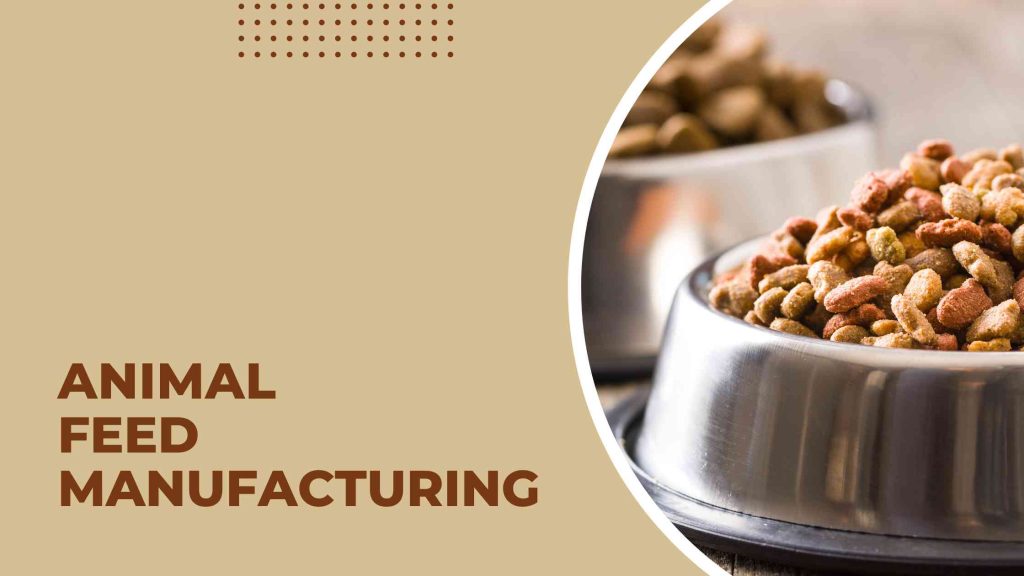The animal feed production industry plays a vital role in supporting the global agricultural sector by providing essential nutrition to livestock. As the demand for meat, dairy, and poultry products continues to rise, the importance of efficient and sustainable animal feed production becomes increasingly evident. This article delves into the dynamics of the animal feed production industry, exploring its key components, challenges, and the role of technology in enhancing this crucial sector.
The Importance of Animal Feed Production
Animal feed is the cornerstone of livestock nutrition, ensuring optimal growth, health, and productivity. It is formulated to provide a balanced diet that meets the specific nutritional requirements of various farm animals, including cattle, poultry, swine, and aquaculture. The quality of animal feed directly impacts livestock’s overall health and well-being, thereby influencing the quality of meat, milk, and eggs produced.
Critical Components of Animal Feed Production
Raw Materials: Animal feed primarily comprises cereals, grains, oilseeds, and protein-rich ingredients such as soybean meal, fish meal, and meat and bone meal. Feed formulations often include vitamins, minerals, and additives to enhance nutritional value and promote animal health.
Feed Manufacturing Process: The production of animal feed involves several key steps, including ingredient procurement, storage, grinding or milling, mixing, pelletizing, and packaging. Each stage requires meticulous control to ensure consistent quality and adherence to nutritional specifications.
Quality Control and Regulatory Compliance: Animal feed manufacturers must adhere to strict quality control measures to guarantee the security and virtue of their products. Compliance with regulatory standards, such as those set by food safety authorities, ensures the absence of contaminants, proper labeling, and accurate nutritional information.
Challenges in Animal Feed Production
Ingredient Sourcing and Supply Chain Management: Animal feed manufacturers face the challenge of procuring high-quality raw materials at competitive prices. Establishing robust supplier relationships and effective supply chain management strategies are crucial to maintaining a consistent and reliable ingredient supply.
Nutritional Requirements and Formulation: Different livestock species have distinct dietary needs at various stages of growth. Formulating feed that meets these requirements while considering cost efficiency can be complex. Balancing optimal nutrition, ingredient availability, and cost-effectiveness is a continuous challenge for feed manufacturers.
Traceability and Food Safety: Ensuring animal feed’s safety and traceability is paramount. Contaminated feed can have severe consequences for both animal and human health. Implementing traceability systems, adhering to Good Manufacturing Practices (GMP), and complying with regulatory standards are critical to mitigating these risks.
The Role of Technology in Enhancing Animal Feed Production
Technology, specifically Enterprise Resource Planning (ERP) software solutions like Acumatica, has revolutionized animal feed production. These advanced systems offer several benefits:
Streamlined Operations: ERP software streamlines and integrates various aspects of the manufacturing process, including inventory management, production planning, and quality control. This results in improved efficiency, reduced waste, and enhanced overall productivity.
Recipe Management and Nutritional Analysis: ERP systems enable feed manufacturers to create and manage recipes and formulations based on precise nutritional requirements. These solutions provide real-time nutritional analysis, facilitating adjustments to meet changing animal needs and regulatory guidelines.
Inventory and Supply Chain Optimization: ERP software offers inventory management tools that provide real-time visibility into ingredient availability, enabling feed manufacturers to optimize procurement and minimize stockouts. It ensures uninterrupted production and reduces costs associated with excess inventory.
Quality Control and Compliance: ERP solutions include robust quality control functionalities, allowing feed manufacturers to monitor quality at every production stage. These systems facilitate quality checks, track batch data, and ensure compliance with regulatory standards, thus upholding product integrity and safety.
Conclusion
The animal feed production industry plays a vital role in meeting the nutritional requirements of livestock and supporting global food production. Efficient and sustainable animal feed production ensures farm animals’ health, growth, and productivity. With the help of advanced technologies like ERP software solutions, feed manufacturers can optimize operations, ensure nutritional accuracy, enhance traceability, and maintain compliance with regulatory standards. By continuously improving and innovating in animal feed production, the industry can contribute to the overall development and sustainability of the agricultural sector.
Acumatica ERP software solution offers comprehensive tools and features that can significantly enhance animal feed manufacturing processes. By integrating various aspects of the manufacturing workflow, Acumatica enables feed manufacturers to streamline operations, improve efficiency, and ensure the production of high-quality animal feed products.

Sangeetha brings 20 years of experience in Information Technology which includes Solution architecting, building micro services, research, and evaluation of business applications, integrating apps.

